Search
Search Results
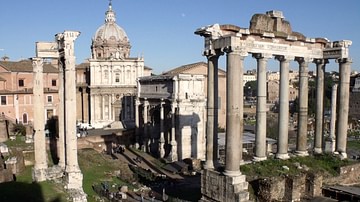
Definition
First Triumvirate
The First Triumvirate of ancient Rome was an uneasy alliance between the three titans Julius Caesar, Pompey, and Crassus which, from 60 BCE until 53 BCE, dominated the politics of the Roman Republic. Alliances have always been a part of history...
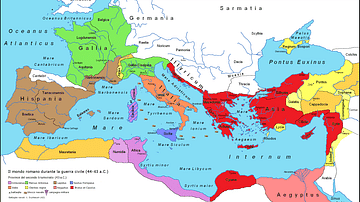
Definition
Second Triumvirate
The Second Triumvirate was a political association of convenience between three of Rome's most powerful figures: Mark Antony, Lepidus, and Octavian in the 1st century BCE. Following the assassination of Julius Caesar the three vowed revenge...
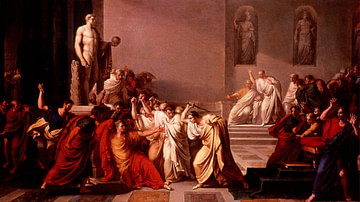
Article
The Assassination of Julius Caesar
Veni, vidi, vici! This was the simple message the Roman commander Julius Caesar sent to the Senate in Rome after a resounding victory in the east against King Pharnaces of Pontus - a message that demonstrated both arrogance as well as great...
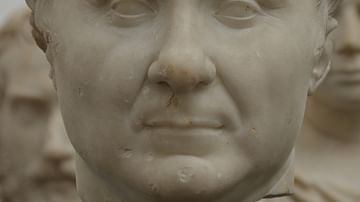
Definition
Pompey
Gnaeus Pompeius Magnus, also known as Pompey or Pompey the Great, was a military leader and politician during the fall of the Roman Republic. He was born in 106 BCE and died on 28th September 48 BCE. His father was Gnaeus Pompeius Strabo...
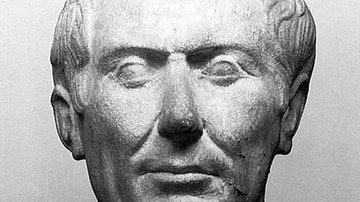
Definition
Julius Caesar
Gaius Julius Caesar was born 12 July 100 BCE (though some cite 102 as his birth year). His father, also Gaius Julius Caesar, was a Praetor who governed the province of Asia and his mother, Aurelia Cotta, was of noble birth. Both held to the...
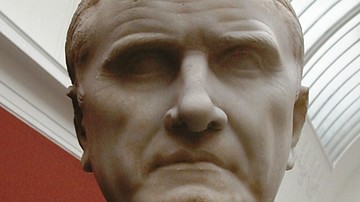
Definition
Marcus Licinius Crassus
Marcus Licinius Crassus (115-53 BCE) was perhaps the richest man in Roman history and in his eventful life he experienced both great successes and severe disappointments. His vast wealth and sharp political skills brought him two consulships...
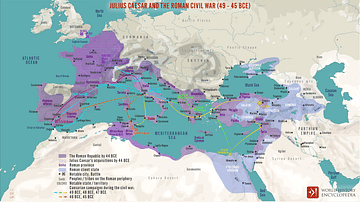
Definition
Roman Republic
In the late 6th century BCE, the small city-state of Rome overthrew the shackles of monarchy and created a republican government that, in theory if not always in practice, represented the wishes of its citizens. From this basis the city would...
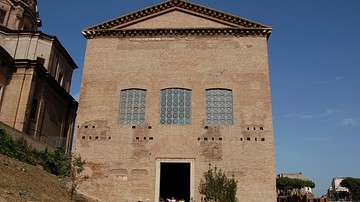
Definition
Roman Government
Western Civilization is forever indebted to the people of ancient Greece and Rome. Among the numerous contributions these societies made are in the fields of art, literature and philosophy; however, perhaps their greatest gift to future generations...
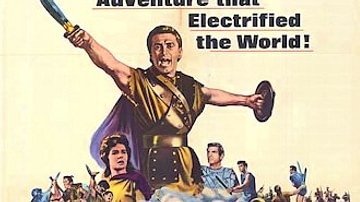
Definition
Spartacus
Throughout history - both ancient and modern - those bound in chains have fought to free themselves from their oppressors. As with most civilizations - Assyrian, Greek and even American - slaves in ancient Rome were not considered citizens...
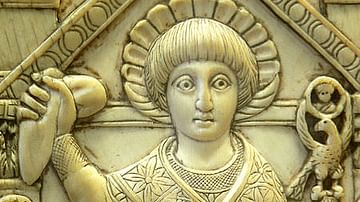
Definition
Consul
In 509 BCE, with the exit of the last Etruscan king, Lucius Tarquinius Superbus, the Roman people were presented with a unique opportunity, an opportunity that would eventually have an immense impact on the rest of Europe for centuries to...